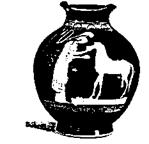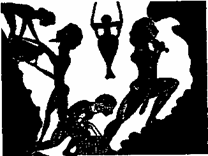home
 Economy Economy
 books books
 The history of the world economy - Polyak GB The history of the world economy - Polyak GB
|
The history of the world economy - Polyak GB
7.3. The Greek economy of the classical period (V-IV centuries. BC. E.)
V in. BC. e. - While the highest rise of Greek civilization. During this period, the final classic slavery drawn up, flourishes policy. A huge role in the development of Greece played a victory in the Greco-Persian Wars (500-449 BC. E.), At the time of parlayed Afingv leading state of the Greek world. The last decades of the century were marked by the Peloponnesian War (431-404 BC..) Between the eternal rivals - Athens and Sparta, to accelerate the development of commodity-money relations and contribute to the initiation of the policy of the crisis in the IV. BC. e.
The sectoral structure of the economy
The main branch of the Greek economy continued to be agriculture: the majority of people it employed, agriculture, as in the past it was considered the only kind of practical activity, worthy citizen. A process that began in agriculture VIII-VI centuries. BC. E., Are further developed: increased marketability of production, deepening regional specialization (eg, Greek city-states of Northern Black Sea Coast and Sicily were grain suppliers, Athens - olive oil, the island of Chios and Thasos - wine, etc...). However, completely natural economy has not been superseded. There is still attractive for individuals and for the policies remain the principle of self-sufficiency - independence from the outside world, the political and economic independence and self-sufficiency. However, in contrast to the archaic era in V. BC. e. It recognizes that all necessary policy can be achieved by means of trade.
In connection with the general economic recovery, the widespread use of slave labor, the development of trade in the Greek craft in V. BC. e. is expanding production, deepens the division of labor. Especially actively developing industries related to shipbuilding and seafaring, mining, ceramics production.
Even more important than in the preceding period, becomes foreign maritime trade. In this respect, the peoples of the ancient Greeks could be compared only to the Phoenicians, and in more recent times only the Netherlands XVI-XVII centuries. It can be comparable with the classical period of ancient Greece on the contribution to the development of trade of his era. Characteristically, when the Phoenicians and the Dutch were mainly engaged in intermediary trade, the ancient Greeks, not neglecting the mediation, widely exported their agricultural and handicraft products especially high quality.
The main items of exports to other countries were olive oil, wine, metal, ceramics. In Greece mainly imported food (especially grain, salted fish), slaves, various kinds of raw materials (iron, copper, wood, resin, fur, leather, linen, ivory, and so on. D.). In trade, the individual Greek city with each other prevailed crafts, specialized in the manufacture of which one or another region. The main centers of Greek foreign trade were Athens, Miletus, Corinth.

Pitcher for wine (c. 470 BC)
Domestic trade in the Greek city was developed much weaker. At City Market farmers from the surrounding villages came to the ground and sold agricultural products in exchange for the craft.
Organization of production
The most important feature of the Greek manufacturing economy in V. BC. e. - Widespread classical slavery. War, piracy, slave trade (the main sources of slavery) provided a dramatic increase in the number of slaves. In V in. BC. e. slaves are used in all areas of production, are the main labor force, and finally deprived of all rights. It is believed that in the most developed area in Greece - Attica - slaves accounted for about one-third of the population. Particularly active slave labor was used in craft workshops - ergasteria. Among the craft workshops dominated by small (two to ten slaves), but there were quite a large ergasteria, which used the labor of about 50-100 slaves. Especially ambitious was the use of slave labor in mining. So, when developing Lavrionskih silver mines (in the southern part of Attica), some individuals used the labor of slaves 300-1000.

Greek miners working on the rope dipped in food VI. BC.
In agriculture, the Greek slave labor played a relatively minor role, due to two main factors: the growing and cultivation of labor-intensive crops (grapes, olives, vegetables) was unprofitable extensive use of low-productivity labor of slaves, and the predominance of small and medium farms precluded widespread use of slave labor. Greek farmers, as a rule, the whole family worked the land, using labor as an auxiliary one - seven slaves; used as hired labor, especially during seasonal work.
slaves is very actively used as domestic servants, secretaries, etc. Slaves could rent (mostly cooks, dancers, artisans), some were released on the rent -. In such cases, a slave could make his workshop, to engage on any job - the boss in his life did not interfere. Along with private and public slaves existed, for example, in Athens, they were carrying police service, replaced by smaller positions in the city administration: the secretaries, clerks, bailiffs and others.
money relations
In V in. BC. e. coinage covers the entire Greek world. As a result, the retail development at this time begins chasing bronze small change coins. The right to mint its own coins used by all of the independent Greek city-states, it is not surprising that the development of trade in the V century. BC. e. brought to life a special profession changed (trapezitov *). Gradually (... Mainly from the end of V century BC) are exchange shops begin to perform some of the functions typical of banks: keeping money transfer different amounts from the account of one client at the expense of another, issuing cash loans. The usual cost of borrowing on the security of land, town house was about 15%, the percentage of on maritime loans (under more precarious security of ships and goods) could exceed 30%.
* From c. table, money-changing shop.
Trapezitov also performed some functions of notary offices - they make transactions, bills of sale drawn up, the documents were stored.
The role of the state in economic life
In the majority of the Greek polis, there was no organized, brought a steady and significant revenue of the state economy, there was no direct taxation of citizens. The lack of a stable source of replenishment of the state treasury partly offset by voluntary donations and liturgies - taxes from the wealthiest citizens of the needs of the state. During the wars with all citizens must pay an extraordinary war tax - eysfora. Many policies have other sources of replenishment of the treasury, since government revenues in Athens replenished by Lavrionskih silver mines. For example, during the Greco-Persian Wars in 482 BC. e. Themistocles proposed on the income from the mines to build warships. Later these mines were leased to individuals - citizens of Athens.
Supply of bread was the most important issue of economic policy of the majority of the Greek policies. Special officials cared about the uninterrupted transport of grain, special rules of its transit have been established. V in the end. BC. e. in many poleis of the richest citizens elected commission for the purchase and distribution of bread among citizens. This regulation also applies to a number of cases of building materials, wood, flax, oil and so on. D.
To maintain order in the domestic markets in many city-appointed special officials - agoranomy (market caretakers) who charge a fee, to monitor the quality of products, the accuracy of weights and measures, etc...
New developments in the Greek economy in the IV century BC
Currently in IV. BC. e. It is considered as a period of crisis in the classical IV. to the Greek polis. This process was a direct consequence of the development of the Greek economy. Manifestations yuizisa traditional polis structure in the first place were changes in land relations. Since the end of V in. BC. e. very widely distributed transaction of purchase and sale of land, which in the IV. BC. e. considered not as a basis for the life of a citizen, and as one of the sources of income. Furthermore, in IV. BC. e. increasingly violated the exclusive right of citizens to own land - privileges, including the ability to purchase land and houses distinguished by any Mietek merits are provided. In addition to V in the end. BC. e. the lease of private property, as well as the processing of a foreign land was considered shameful for a citizen, tenants are mostly freedmen and metics. Thus, uncivil population enters into the sphere of agriculture, previously virtually closed to him.
In addition, many citizens are beginning to engage in more profitable than farming, activities that were previously considered unworthy of a citizen: the maritime trade, interest-bearing loans, mine development, and so on..
All this, as well as the rapid development of handicrafts and trade, which is mainly engaged Metekov objectively leads to a strengthening of the role of free uncivil people in the economy, social and political life of the policy, the gradual destruction of the traditional structure of the polis; the main measure of value is money, they determine the position of the individual in society.
In connection with the policy of the crisis have been significant changes in the field of slavery. Since the Peloponnesian War, a growing number of Cypriots slaves that were virtually unthinkable before. In addition, as more profitable, it is becoming increasingly common practice of holiday slaves on the rent. Dramatically increasing the number of freedmen - slaves who managed to save money and redeem at will. In general, in the State in. BC. e. classical slavery continues to evolve, the number of slaves increased.
Greek polis crisis in the IV. BC. e. It was not associated with economic decline. On the contrary, the crisis, starting with the fundamental change in the policy for land relations, is closely linked with the development of commodity-money relations, the desire for enrichment, mezhpolisnyh development of economic ties. These processes have contributed to the weakening of the close relationship between the citizen and his policy, created preconditions for the development of the contradictions between private and public interests, the collision of various social groups within the civilian staff.
The loss of a close unity of the polis was one of the important reasons for the loss of Greece's independence and subordination to it in 338 BC. e. Philip of Macedon, whose son and heir, Alexander, set up in the 30-20-ies of the IV. BC. e. The major world powers of antiquity. Since then, policies have ceased to be the leading force in the Greek world, they were replaced by Hellenistic monarchy.


Comments
Commenting, keep in mind that the content and the tone of your messages can hurt the feelings of real people, show respect and tolerance to his interlocutors, even if you do not share their opinion, your behavior in terms of freedom of speech and anonymity offered by the Internet, is changing not only virtual, but real world. All comments are hidden from the index, spam control.